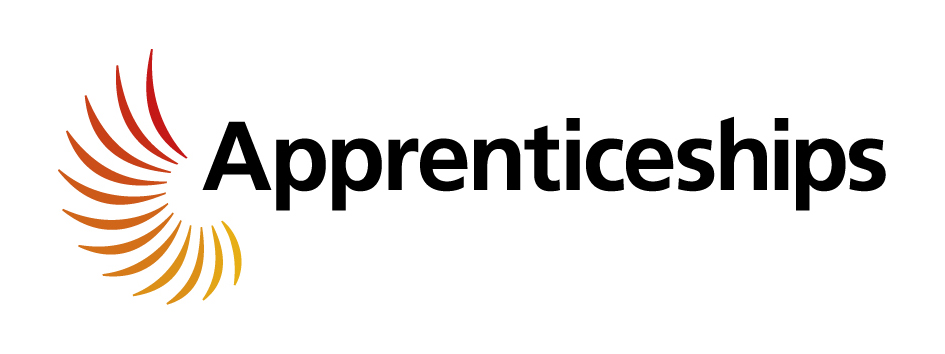
Chartered Manager Degree Apprenticeship
Strive for excellence.
You are here
- Home
- Apprenticeships
- Programmes in England
- Chartered Manager Degree Apprenticeship
Chartered Manager Degree Apprenticeship
The Open University's Chartered Manager Degree Apprenticeship provides apprentices with higher-level management skills, core competencies and desired behaviours to create leaders that can drive performance and productivity improvements in your organisation.
The programme is work-based, combines on- and off-the-job learning and development and can be delivered flexibly around the demands of your workplace.
QUICK ACCESS LINKS
- Why choose The Open University's Chartered Manager Degree Apprenticeship?
- Who is it for?
- Who is eligible?
- What is included in the programme?
- Programme overview
- Programme components
- The support team
- Next steps
- Additional information for employers and apprentices
- Programme structure and delivery
- All programmes available
Why choose The Open University’s Chartered Manager Degree Apprenticeship?
- Delivered flexibly around the demands of your organisation. Our tutor-supported, rich-media online learning methods mean only minimal time away from the workplace is required.
- A scalable programme which provides a consistent experience for staff across multiple locations.
- Designed and delivered by the triple accredited Open University Business School, which is ranked in the world’s top 1%.
- Unlike other universities, we have no formal entry requirements, giving you more flexibility over the candidates you’d like to develop.
- We have over 50 years’ experience of providing knowledge and skills to busy working adults and have a proven history of delivering apprenticeship programmes to organisations from the NHS to FTSE 100 companies.
Francis (Frankie) Bentley, who is an apprentice at South Western Railway, explains why he decided to apply for our Chartered Manager Degree Apprenticeship.
The programme is suitable for employees new into their roles looking to manage people, projects or tasks, or employees who are aspiring to be, or are in these roles already who want to further their skills and gain a formal management qualification.
Below is a summary of the eligibility criteria as set by the government for apprentices. For further information, see the Government funding rules.
To be eligible for government funding, at the start of the apprenticeship, apprentices must:
- Be over 16 years old
- Not be in full-time education
- Not currently on another apprenticeship
- Have the right to live and work in England
- Spend at least 50% of their working hours in England
Achieving English and maths is a mandatory requirement of all apprenticeships.
- If the apprentice has provided evidence of Level 2 in English and maths or equivalent (i.e. grade A*- C / 4 – 9 GCSE in English and maths or equivalent) they will be exempt from this requirement.
- If an apprentice doesn’t have any evidence of Level 2 in English and maths, they can achieve these qualifications during their apprenticeship. The Open University has a team of very experienced English and maths tutors to support the apprentices in developing these functional skills and preparing for the exam(s).
Replacement exam certificate: For qualifications gained in the UK you can go to the government website to get a replacement exam certificate.
The 3 - 4 year work-based training programme includes:

BA (Hons) Degree in Management Practice

Portfolio and work-based project

English and maths functional skills

End-point assessment
|
Stage 1 |
Stage 2 |
Stage 3 |
Completion |
|
An introduction to business and management. Topics include:
|
Shaping business opportunities. Topics include:
|
Strategic management. Topics include:
|
End-point assessment (EPA): Review of project & portfolio, presentation & interview. BA (Hons) in Management Practice awarded Apprenticeship programme completed. |
|
Effectiveness and integrity |
Developing effective work relationships |
Delivering results for the organisation |
|
| Gateway Preparation Module | |||
| English and maths (functional skills) development* | |||
| Theory modules | |
| Professional Practice modules |
* If required. The Open University strongly recommends that these qualifications are achieved within the first 12 months of the apprenticeship in order to have maximum benefit on academic study and workplace development.
The apprenticeship is made up of the following seven components:
1 - The initial assessment
Will be carried out by an Apprenticeship Programme Delivery Manager. This initial assessment includes a skills scan, a mandatory systematic review of an apprentice’s knowledge, skills and behaviours against the standard. This will be completed jointly by the apprentice and the line manager to establish the apprentice’s baseline against the standard and how much new learning is needed. It is used to develop the Training Plan part 2, a tailored individual learning plan, to help apprentices make the most of the apprenticeship.
2 - Tutor-supported study modules
Will build understanding of the key theories, skills and competencies in taking apprentices’ leadership and management skills to a higher level. Academic Tutors will facilitate study, support learning and feedback, and mark module assessments. English and maths Functional Skills tutors will support the successful completion of these qualifications where an applicant is not able to provide evidence of prior attainment.
3 - Professional practice modules
Guide apprentices in applying and evidencing their academic knowledge to their working practices. This often involves apprentices reflecting on their role and learning about the application of their developing skills and behaviours within the workplace. These modules are facilitated by Practice Tutors, who support learning and feedback, as well as mark the module assessments.
4 - The summative portfolio
It records work-based learning evidence, demonstrating apprentices’ application of the knowledge, skills and behaviours they have learnt. Apprentices will record how they have practically applied their newly acquired knowledge and skills in the workplace, as well as the feedback they receive from line managers, peers and direct reports. The portfolio of evidence is reviewed during the end-point assessment to confirm whether the apprentice has developed the skills, knowledge and behaviours outlined in the standard.
5 - The workplace project
Is undertaken as part of apprentices’ normal work. It is a business-related project demonstrating the application of the skills and knowledge learnt during their apprenticeship. Line managers are key to enabling a successful work-based project.
6 - The BA (Hons) Management Practice
Awarded by The Open University.
7 - The End-point assessment (EPA)
Carried out by an independent assessment organisation chosen by the employer and determines whether apprentices have successfully met the learning requirements of the Chartered Manager Degree Apprenticeship programme.
Line managers will have regular one-to-one meetings with their apprentices to ensure that the learning from the apprenticeship is fully integrated into their performance and development in the workplace. This is to ensure that the apprentice can create evidence against the requirements of the CMDA standard for the evidence portfolio requirements of the End-point Assessment Gateway. The line managers are key to enabling a successful work-based project and completion of the apprentice’s end-point assessment.
The Open University has the experience and support in place to help apprentices succeed and make a positive impact on practice.
In addition to designated account management support, The Open University will deploy expert staff to support your organisation and your apprentices. They will work collaboratively with the relevant roles in your organisation:
Practice Tutor (PT)
The PT is a key role and provides individual support to apprentices to progress and complete all the requirements of the apprenticeship or professional programme they have enrolled in. The support is tailored to the context of each learner’s professional duties and their workplace environment. Regular engagement with each learner’s line manager or work-based supervisor is a critical component of this role. In addition, the PT coaches the apprentice to integrate their academic learning with their professional work, guides them in the development of their portfolio and prepares them for their end-point assessment.
There are further roles and teams that support both apprentices and employers, and that work very closely with the PTs.
Academic Tutors
The role of the Academic Tutor is to support success by using, interpreting and building on the teaching resources produced by The Open University and provided to apprentices. They monitor progression, mark assignments, provide personalised feedback and work in partnership to support the apprentices’ academic, personal and professional development. In addition, Academic Tutors provide pastoral support to apprentices. They are sometimes also referred to as Associate Lecturers or Module Tutors.
Apprenticeship Enrolment and Support Team (AEST)
The AEST supports apprentices throughout their Apprenticeship journey. This team of friendly Senior Advisors can offer advice and support for a range of queries apprentices may have whilst studying their modules, whether that be for advice on an upcoming assignment or exam, navigation around The Open University online learning platforms, or when they are experiencing difficult circumstances that are having an impact on their studies. This support team is able to reach out to a wide range of relevant teams within the University to help apprentices get back on track again.
English and Maths Support Team
This team is made up of English and/or maths specialist tutors and support staff. They work with apprentices who are required to achieve English and/or maths qualifications during their apprenticeship. These specialist tutors are able to provide one-to-one support in areas of challenge and to help prepare the apprentice for the formal qualification tests.
Apprenticeship Programme Delivery Managers (APDM)
This role supports employers to recruit and onboard applicants on to the chosen apprenticeship programme. APDMs provide information, advice and guidance and carry out an initial assessment to ensure the apprenticeship is the right one at the right level for the individual. APDMs provide quarterly management information reports to employers detailing apprentices progress and put interventions in place where an apprentice is in need of support. Employers will have a named APDM to be the primary contact for apprenticeship delivery throughout the programme.
Line Manager
This is a person in the workplace who supports the choice of apprenticeship programme for their employee or applicant and is involved in the onboarding process with their applicant. Line managers facilitate the apprentice to take off-the-job planned training time, ensure that the apprentice has appropriate opportunities to fully engage with the application of the apprenticeship programme learning in the workplace and they fully engage in 12 weekly progress review meetings with the Practice Tutor and apprentice. Line managers have regular one to one meetings with their apprentices to ensure that the learning from the apprenticeship is fully integrated into their performance and development in the workplace. The line managers are key to enabling a successful work-based project and completion of the apprentice’s end-point assessment.
Using The Open University’s tried-and-trusted educational technology, our programmes are delivered flexibly around apprentices’ personal lives and the demands of your organisation.
The tutor-supported online learning is both varied and interactive, with multiple rich media formats that engage and enthuse apprentices on their journey. Learning can be accessed 24/7 on computers, tablets and mobile devices, so apprentices can study at home, work and on the move. Online tutorials, forums and discussion groups allow apprentices to learn from different industries and backgrounds.
An apprenticeship is a job with a formal programme of training which meets the requirements of the Apprenticeship Standard (in England), Framework (in Wales). The time that employers must allocate to this training can vary between programmes. The planned training hours will be detailed in the Training Plan. Note that in England and Wales, this time is called 'off-the-job training' in England and in Scotland, it is called 'protected time'. This is time for the apprentice to engage in the learning with the OU during their contracted working hours.
For full guidance visit: Gov.uk.
The Open University’s flexible, blended learning approach makes it a lot easier for employers to effectively manage off-the-job training, while minimising the impact on productivity in the workplace.
Are you an employee interested in applying for an apprenticeship?
To apply you first need to gain approval from your employer. Please contact your organisation with an expression of interest. If your employer is happy to support your application, they will then contact us.
The process for employers to follow is:
- The employer contacts The Open University.
- An account manager will contact the employer to discuss the requirements of the programme.
- The employer chooses The Open University as the training provider, confirms how they wish to procure the apprenticeship and signs the written agreement if applicable.
- The employer selects prospective apprentices and sends their details to The Open University.
- The Open University contacts the prospective apprentices and invites them to formally apply via The Open University's secure applicant portal.
- Prospective apprentices gather evidence to demonstrate their eligibility and submit their application.
- Apprentices take part in the on-boarding process where they are introduced to the apprenticeship and supported by an Apprenticeship Programme Delivery Manager (APDM).
- Following successful registration, apprentices are recommended to engage with the pre-study material.
INFORMATION FOR EMPLOYERS
Develop the relevant skills for your organisation, improve productivity and achieve higher staff morale.
INFORMATION FOR APPRENTICES
Earn while you learn and develop the skills you need to gain access to sectors you want to work in.
PROCURING VIA FRAMEWORKS
We’re an Approved/Appointed Supplier on a large number of national frameworks and dynamic purchasing systems. See which frameworks are available to procure this programme through.

Chartered Manager Degree Apprenticeship
The Chartered Manager Degree Apprenticeship provides apprentices with higher level leadership and management skills, core competencies and desired behaviours to become a more effective manager.

Digital and Technology Solutions Professional Degree Apprenticeship
The Open University’s Digital and Technology Solutions Professional Degree Apprenticeship programme develops the higher-level skills and behaviours required to create confident and capable digital and technology professionals.

Nursing Associate Higher Apprenticeship
The Nursing Associate is a highly trained generic support role within the field of Nursing which acts as a ‘bridge’ between unregulated Healthcare Assistants (HCA) and Registered Nurses.

Registered Nurse Degree Apprenticeship
The Open University’s Registered Nurse Degree Apprenticeship supports employers to develop their healthcare support workers (HCSWs) towards registration with the Nursing and Midwifery Council, as either Adult, Children and Young People, Learning Disabilities or Mental Health Nurses.

Senior Leader Apprenticeship
Our Senior Leader Apprenticeship develops inclusive leaders who are responsible for developing ethical, innovative and supportive cultures with the ability to deliver results, manage complexity and instigate change.

Social Worker Degree Apprenticeship
Our Social Worker Degree Apprenticeship is a practice-based learning programme that combines theory and practice-based learning and development, delivered flexibly around the demands of your workplace.

Systems Thinking Practitioner Apprenticeship
Graduates from the programme will be able to apply systems thinking in practice, creating leaders and managers capable of making strategy, managing change and co-designing systems interventions in your organisation.

Police Community Support Officer Apprenticeship
Our Police Community Support Officer Apprenticeship programme mixes on-the-job training with off-the-job learning and provides the skills and knowledge needed for a policing career.

Police Constable Degree Apprenticeship
The Police Constable Degree Apprenticeship is delivered through the Police Educational Qualification Framework (PEQF) and led by The Open University Policing Organisation Practice (POP) Team, and provides a mixture of interdisciplinary academic and professional police experience and expertise.
 |
 |
Programme Summary
Location: England
Duration
- 3 - 4 years
Level and standard
- Apprenticeship Level 6
- Apprenticeship standard
Specific entry requirements
- No
Recognition of prior learning (RPL)
- RPL Factsheet
End-point assessment (EPA)
- Non-integrated
Qualifications achieved at the end of the programme
- BA (Hons) in Management Practice (360 credits)
- English and maths Level 2
- Chartered Manager Degree Apprenticeship awarded by the Institute of Apprenticeships and Technical Education (IfATE)
Additional information
Contact usDisability support
Further information
 |
For a more detailed look at our Chartered Manager Degree Apprenticeship, download our brochure. |
Not on our mailing list?
Sign up to receive regular emails that are full of advice and resources to support staff development in your organisation.




